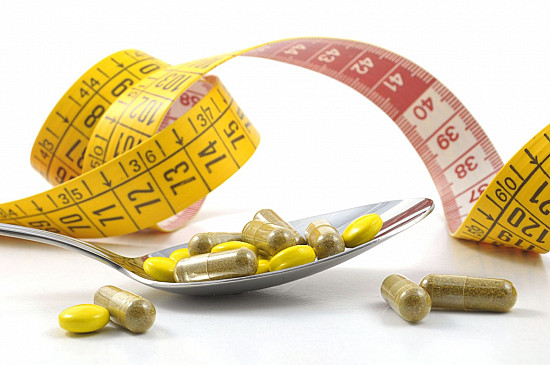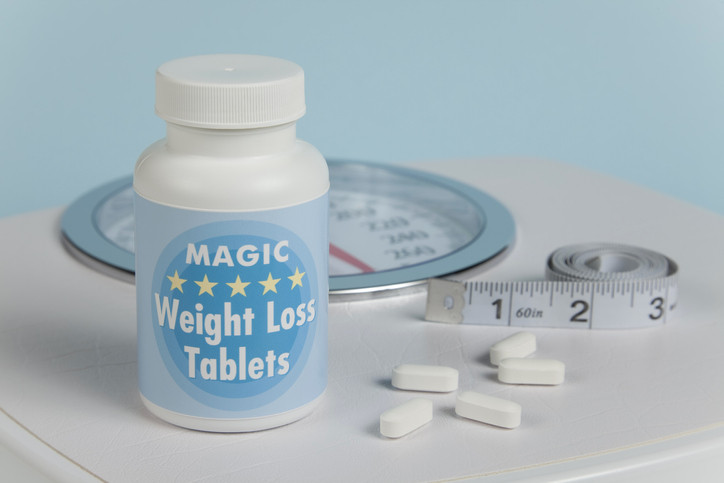In the era of fast fixes and fad diets, Chinese diet pills offer a fascinating mix of tradition and promise. These herbal-based supplements have their roots in Traditional Chinese Medicine (TCM), with centuries of application for balancing internal systems and managing weight. But how do they work, and are they effective—or even safe?
In this in-depth guide, we’ll explore the origins, mechanisms, ingredients, benefits, risks, and cultural perceptions of Chinese diet pills. You’ll also discover how to integrate these ancient remedies into a modern wellness lifestyle responsibly. Whether you’re intrigued by herbal solutions or seeking alternative weight loss options, this blog will unpack everything you need to know.

What Are Chinese Diet Pills?
Chinese diet pills are weight loss supplements formulated primarily with herbal ingredients rooted in Traditional Chinese Medicine (TCM). Unlike synthetic Western diet pills that often rely on chemical stimulants or appetite suppressants, Chinese variants usually incorporate time-honored botanicals like lotus leaf, cassia seed, hawthorn berry, rhubarb root, and ginseng.
These pills aim to:
-
Boost metabolism
-
Reduce internal dampness (a TCM concept associated with fat accumulation)
-
Promote digestion and bowel movement
-
Support detoxification through liver and kidney pathways
In short, Chinese diet pills promise to harmonize the body while nudging it toward healthy weight loss—not just by burning calories, but by restoring balance.
Types of Chinese Diet Pills:
-
Fat-burning herbal formulas – Typically increase thermogenesis using bitter orange or ephedra (though ephedra has been banned in many countries).
-
Appetite suppression blends – Leverage herbs like konjac root and job’s tears to induce satiety.
-
Detox and digestion aids – Often include rhubarb root and cassia seeds to improve bowel movements.
Because these pills vary widely in formulation and intended effect, consumers must look beyond the packaging and understand the underlying TCM theory.
Key Ingredients Found in Chinese Diet Pills
Many Chinese diet pills rely on a specific blend of herbs that target fat accumulation, sluggish digestion, and fluid retention. Here are some commonly used ingredients:
1. Lotus Leaf (He Ye)
-
Traditionally used to eliminate internal heat and remove dampness.
-
Modern research suggests it may inhibit lipase activity, reducing fat absorption.
2. Cassia Seed (Jue Ming Zi)
-
Has laxative and liver-cleansing properties.
-
Believed to lower cholesterol and regulate lipid metabolism.
3. Hawthorn Berry (Shan Zha)
-
Improves digestion and promotes fat breakdown.
-
Contains antioxidants that help prevent fat accumulation.
4. Rhubarb Root (Da Huang)
-
Acts as a strong purgative to support detoxification.
-
Not suitable for long-term use due to its potency.
5. Garcinia Cambogia
-
A modern addition to some Chinese blends.
-
Contains HCA (Hydroxycitric Acid) which may suppress appetite and inhibit fat storage.
6. Job’s Tears (Yi Yi Ren)
-
Diuretic and anti-inflammatory.
-
Commonly used to reduce water weight.
Together, these ingredients offer a multi-layered approach to weight loss. However, not all formulations are created equal, and some may contain unlisted or synthetic substances.

Do Chinese Diet Pills Really Work?
The effectiveness of Chinese diet pills depends on several factors:
-
The individual’s body constitution
-
Ingredient authenticity and quality
-
Lifestyle factors like diet, exercise, and sleep
TCM doesn’t treat weight gain as a single issue. Instead, it sees it as a symptom of imbalance. For example:
-
Qi deficiency may lead to poor metabolism.
-
Spleen dampness can cause fat accumulation.
-
Liver Qi stagnation can contribute to emotional eating.
Real-Life Case Study:
A woman in her late 30s with a sedentary lifestyle and signs of damp-heat (heavy limbs, bloating) tried a custom Chinese formula with lotus leaf, hawthorn, and cassia seed. Combined with acupuncture and a warm diet, she reported 4kg of weight loss over 2 months—without harsh side effects.
What Studies Say:
-
A 2019 meta-analysis of 19 TCM-based weight loss products found moderate efficacy, especially in short-term fat reduction and waist circumference improvement.
-
However, there is a lack of long-term data and large-scale controlled trials.
Bottom line: results vary. Chinese diet pills may complement your weight loss journey, but they are not a standalone fix.
Potential Risks and Side Effects
Despite their natural appeal, Chinese diet pills are not risk-free. Common concerns include:
1. Unregulated Formulations
Many “herbal” products have been found to contain:
-
Sibutramine (a banned pharmaceutical)
-
Diuretics or laxatives
-
Caffeine or ephedrine derivatives
These substances may lead to:
-
Elevated heart rate
-
High blood pressure
-
Mood swings
-
Insomnia
2. Misuse or Overdose
-
Taking detox-type pills too often may cause chronic diarrhea and electrolyte imbalance.
-
Long-term use of harsh purgatives like rhubarb root can damage gut flora.
3. Interaction with Medications
-
Some ingredients may interfere with blood thinners, diabetes medications, or antidepressants.
Pro tip: Always consult a healthcare provider or a certified TCM practitioner before starting any supplement regimen.
Cultural Misconceptions: Why the West Often Gets It Wrong
Many Western consumers view Chinese diet pills as exotic shortcuts to weight loss. This perception leads to misuse and unrealistic expectations.
Common Misunderstandings:
-
“Natural = Safe”: Many assume all herbs are gentle. In reality, TCM formulas are potent and require precision.
-
“Quick Fix” Mindset: Western diet culture prioritizes speed over sustainability, clashing with TCM’s gradual, root-cause approach.
-
Disregard for Body Constitution: TCM classifies people as hot, cold, dry, damp, etc. One formula does not suit all.
The Right Way to Use Chinese Diet Pills:
-
Get a body constitution diagnosis.
-
Use supplements as support, not substitutes.
-
Combine with dietary adjustments and stress management.
Bridging this cultural gap is key to getting the most out of TCM weight loss methods.
How to Integrate Chinese Diet Pills with Modern Wellness
A powerful way to optimize results is to merge ancient Chinese wisdom with modern dietary strategies.
Pairing with Balanced Nutrition:
-
Take herbal pills with warm water before meals.
-
Favor cooked, warm foods to support digestion (avoid cold salads if you have spleen deficiency).
-
Avoid processed sugar and fried foods that cause dampness.
Suggested Weekly Routine:
| Day | Morning | Lunch | Evening |
|---|---|---|---|
| Mon | Green tea + cassia pill | Steamed fish + rice | Lotus leaf soup |
| Tue | Job’s tears porridge | Stir-fried greens + tofu | Light soup + hawthorn tea |
This synergy helps sustain energy, prevent digestive fatigue, and gently reduce weight over time.
How to Choose Safe and Effective Products
With thousands of products on the market, how do you find one that works?
Checklist:
-
Certified by GMP or TGATransparent ingredient list (avoid “proprietary blend” with no details)
-
Backed by TCM practitioners or clinics
-
Free from banned substances (check FDA or Health Canada alerts)
Red Flags:
-
Promises of “instant” fat melting
-
Hidden ingredients or unclear sourcing
-
Extremely low prices (often low quality)
Where to Buy:
-
Reputable TCM pharmacies
-
Verified online sellers with lab-tested products
-
Licensed herbalists who customize blends for your body
Legal and Regulatory Considerations
Chinese diet pills fall into a regulatory gray zone in many countries.
United States:
-
Regulated as dietary supplements, not drugs
-
FDA does not approve them for safety/efficacy before sale
-
Warning letters have been issued to companies for undeclared sibutramine and phenolphthalein
China:
-
Must be approved by the National Medical Products Administration (NMPA)
-
Registered under “health functional food” category
-
Must follow strict manufacturing practices
Europe:
-
Regulations vary widely between countries
-
EFSA emphasizes safety data and transparency in labeling
Consumers must remain vigilant. Always double-check certifications and ingredients.

FAQ
1. Can Chinese diet pills replace exercise?
No. They may support fat metabolism but are not a substitute for physical activity.
2. Are there Chinese diet pills without side effects?
Some milder blends exist, but every body reacts differently. Consult professionals.
3. How long should I take them?
Most practitioners recommend 4 to 8 weeks, followed by rest periods.
4. Can I combine Chinese and Western weight loss supplements?
It’s risky. Some ingredients may conflict. Always seek medical advice first.
5. Are DIY herbal formulas safer?
Not necessarily. Incorrect dosages or herb combinations may cause harm.
Final Thoughts: Ancient Wisdom, Modern Caution
Chinese diet pills hold intriguing potential—but they’re not a miracle cure. Grounded in centuries of herbal medicine, they offer a holistic path for those willing to understand their bodies, honor their constitution, and integrate thoughtful habits.
If you decide to try Chinese diet pills:
-
Educate yourself
-
Choose quality sources
-
Pair them with mindful eating and exercise
-
Consult experts
Weight loss isn’t just about dropping numbers—it’s about restoring harmony. And sometimes, the oldest methods offer the most sustainable results.